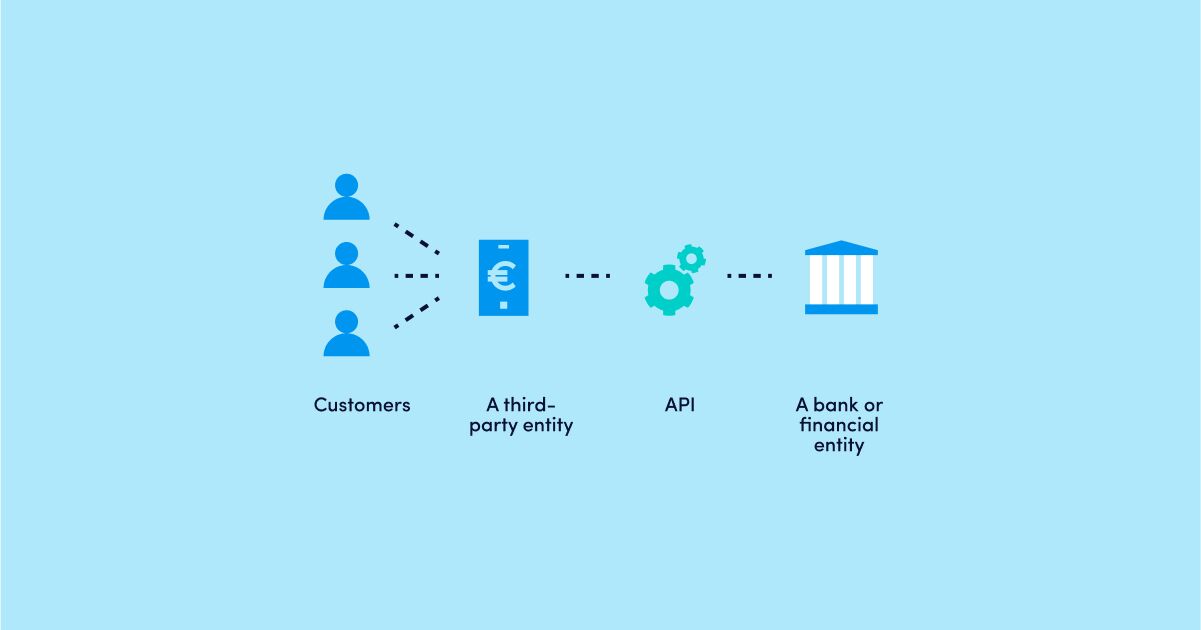Securing the appropriate financial services licenses in the dynamic fintech industry is vital for legal and secure operations. License selection depends on the client base, operational regions, activities, and business types. Delve into our article to gain insights into four distinct license types, each tailored to specific needs and industries. Explore which license aligns best with your business — payment, e-money, MSB, Fintech, or a banking license.
Payment and E-Money License (EEA, UK)
Payment institution (PI) and e-money institution (EMI) licenses play a pivotal role in facilitating digital transactions and ensuring the security, integrity, and efficiency of electronic financial services. These licenses empower financial institutions and fintech companies to offer a spectrum of digital payment solutions, from online purchases to peer-to-peer transfers, without the need for a banking license. Specifically, EMI and PI licenses obtained in the EEA/UK are well-suited for companies catering to customers in the EEA/UK region.
Payment Institution Licenses:
Payment Institution licenses are granted to institutions that provide payment services, enabling them to process transactions on behalf of customers. These services range from card and bank transfers to mobile payments and digital wallets. Payment licenses are essential for ensuring that these transactions comply with regulatory standards, promoting transparency and safeguarding the interests of both consumers and service providers.
According to PSD2, companies holding Payment Institution licences can provide the following services:
1) Services enabling cash to be placed on a payment account as well as all the operations required for operating a payment account.
2) Services enabling cash withdrawals from a payment account, along with all the operations required for operating a payment account.
3) Execution of payment transactions, including transfers of funds on a payment account with the user’s payment service provider or another provider.
4) Execution of payment transactions where the funds are covered by a credit line for a payment service user.
5) Issuing of payment instruments and acquiring of payment transactions.
6) Money remittance.
7) Payment initiation services.
8) Account information services.
According to PSD2, Payment Institutions are not allowed to issue electronic money.
E-Money Licenses
E-money Institution licenses are designed for entities that issue electronic money and provide other payment services allowed with a Payment Institution licence. Electronic money, or e-money, represents a digital currency stored electronically and used for transactions. E-money licenses ensure issuers adhere to regulatory requirements, safeguard user funds, and maintain adequate financial reserves to cover the electronic money in circulation.
The Licensing Process for Payment and E-Money Services
Obtaining a payment or e-money license involves a thorough vetting process to ensure that financial institutions and fintech companies are equipped to operate responsibly in the digital financial sphere. The application process typically includes submitting a comprehensive business plan, demonstrating financial stability, ensuring compliance with regulatory standards, and providing other required documentation to certify that the business and the team fully comply with regulatory requirements.
For example, in the EEA and UK, there are 2 types of payment and e-money institutions – small and authorised payment and e-money institutions. Small payment and e-money institutions have turnover limits and do not have passports to provide services to other EU member countries.
The duration of the licensing process ranges from 6 to 24 months, depending on factors such as jurisdiction, regulatory body, license type, and the company’s market experience.
Fintech License
A fintech license, comparable to a payment or e-money license, is an official regulatory authorisation enabling companies to engage in the financial technology sector. Among the prominent fintech licenses is the Swiss Fintech license. This license suits fintech companies that predominantly offer financial solutions to Swiss clients.
Entities with a Swiss Fintech license can receive client deposits, with a cap set at CHF 100 million, or hold collective custody of crypto-based assets. However, these deposits must remain uninvested, and no interest will be paid. Additionally, companies holding this license are restricted from engaging in lending business.
To obtain a Swiss FinTech license from the Swiss regulator FINMA, it is essential to furnish a robust foundation for your FinTech application and the necessary documents. The evaluation process for the Fintech license application typically spans approximately 9-16 months.
MSB License (Money Services Business)
The acquisition of an MSB license is another option that enables businesses to engage in activities related to money transmission, currency exchange, and other financial services.
Money Services Businesses encompass a broad category of financial entities that engage in money transmission, currency exchange, check cashing, and other payment-related activities. These businesses act as intermediaries, facilitating the movement of funds between individuals and entities.
For example, MSBs in Canada are allowed to offer one or more of the following services to the public:
1) Foreign exchange dealing
2) Remitting or transmitting funds
3) Issuing or redeeming money orders or similar negotiable instruments
4) Dealing in virtual currency
5) Crowdfunding platform services
This type of license, or more precisely, registration, is well-suited for businesses engaged in money transfer, currency exchange, or other financial services falling outside the purview of traditional banking. Since acquiring an MSB registration in Canada is a notably simpler and quicker process, typically taking around 3-4 months, companies often explore this option instead of pursuing a payment or e-money license. Read more if a Canadian MSB license aligns with your business needs.
Besides Canada, MSB licences are available in the United States and Australia. MSB licenses are granted by regulatory bodies such as FINTRAC (Canada), FinCEN (the USA) or AUSTRAC (Australia). These regulatory authorities impose licensing regulations to mitigate the risks associated with money services businesses, such as money laundering, fraud, and other illicit activities. To secure an MSB license, businesses must meet specific criteria, which include: record keeping, risk assessment, AML/CTF program, fit and proper assessment.
Money Remittance Licence
Money remittance services have become integral to global financial transactions, facilitating the swift and secure transfer of funds across borders. Behind these transactions lie stringent regulatory frameworks, with money remittance licenses serving as the gateway for businesses to operate in this dynamic sector. Money remittance licences look similar to Money Services Business licences but are not the same.
A widely recognised money remittance license is a payment institution license registered in the EEA or UK, permitting the provision of a single type of service in accordance with PSD2 – money remittance.
According to PSD2, money remittance is a service for the transmission of money (or any representation of monetary value) without any payment accounts being created in the name of the payer or the payee, where:
- Funds are received from a payer for the sole purpose of transferring a corresponding amount to a payee or to another payment service provider acting on behalf of the payee or
- Funds are received on behalf of and made available to the payee.
Specifically, this type of licensing is well-suited for businesses involved in transferring money, often across borders, to meet financial needs or fulfil payment obligations. This financial service is crucial for individuals who must send funds to family members, friends, or others in different regions or countries.
Money remittance licenses encompass various activities designed to facilitate the smooth movement of funds between individuals and across different regions. These activities include:
Traditional Brick-and-Mortar Services:
These services, conducted through physical locations such as banks or dedicated remittance centres, enable customers to send money in person.
Online Money Transfer:
Online money transfer allows users to initiate transactions through web-based interfaces or mobile applications, providing convenience and accessibility.
Currency Exchange:
Money remittance licenses also authorise businesses to participate in currency exchange activities, allowing them to convert funds into the recipient’s local currency.
Banking License
A banking license is a regulatory approval a country’s financial authorities grant, empowering an institution to conduct banking activities within the jurisdiction. These activities may include accepting deposits, mortgages, lending, investment advisory services, securities brokerage, investment fund management and other services. The range of services provided may differ across various countries. The granting of a banking license is a testament to an institution’s financial stability, operational integrity, and compliance with regulatory standards.
As per European regulations, exclusive rights to accept deposits and other repayable funds from non-professional market participants and offer comprehensive banking lending services are reserved solely for Banks recognised as Credit Institutions. Banks licensed in a European Union or European Economic Area (EU/EEA) member state can extend their banking services across the European financial market, encompassing all 27 member states, without additional licensing.
Banking licenses are accessible in every country with active banking and payment legislation. Acquiring such a license requires substantial capital, thorough due diligence, and a collaborative effort with regulatory bodies. For instance, in the European Economic Area (EEA), standard banks must have an equity capital of EUR 5 million, and the licensing process extends beyond two years.
Specialised bank licence by Lithuania
Specialised banking licenses are more focused and cater to specific financial activities with fewer requirements. These licenses allow institutions to operate within a niche segment of the financial industry while adhering to specialised regulations tailored to their respective areas.
The Specialised Bank license, necessitating only a 1 million EUR capital requirement, stands out as unique within the European Union and the European Economic Area (EU/EEA). This prestigious pan-European banking license, issued by the European Central Bank through the Bank of Lithuania (the central bank and financial regulator), enables the provision of many traditional banking services across the common European financial market. The banking services offered by a Specialised Bank in European markets include:
- Lending;
- Payment services;
- Receipt of deposits;
- Currency exchange;
- Issuing of e-money;
- Issuing guarantees;
- Fund administration;
- Financial leasing;
- Financial intermediation;
- Creditworthiness assessment services;
- Safe-deposit box rental;
- all other traditional banking services
A Specialised Bank is limited to offering services such as investment advisory, securities brokerage, investment fund management, and other related services.
In navigating the complex landscape of business licensing, we understand the significance of obtaining the right license for your specific needs. If you need a license for your business, don’t hesitate to contact us. Our dedicated licensing experts at Advapay are here to provide guidance and support across various licenses, including payment, e-money, fintech, and MSB licenses.
We help to run fintech businesses
- Jurisdiction selection and structuring advice (EEA-UK jurisdictions, Canada (MSB) and other
- Preparation of all business, IT, and compliance documentation
- Communication with regulators
- Local team recruitment
- Provide regulatory-compliant software with comprehensive descriptions
Fast way to start a payment business – Canadian MSB license, including software and payment infrastructure
The best all-around jurisdiction for new fintechs. It is commonly used by companies with different risk profiles and business models (remittance, e-wallets, crypto).
Pros:
- Affordable, easy, and fast registration
- Covers a wide range of fiat and crypto payment services
- Friendly regulator, open to international businesses
What we offer:
- Facilitating the opening of correspondent accounts in European and Canadian payment institutions.
- Providing compliance-as-a-service.
- With our team based in Canada, we maintain ongoing communication with regulatory bodies.
- Tailoring individual policies for each client







